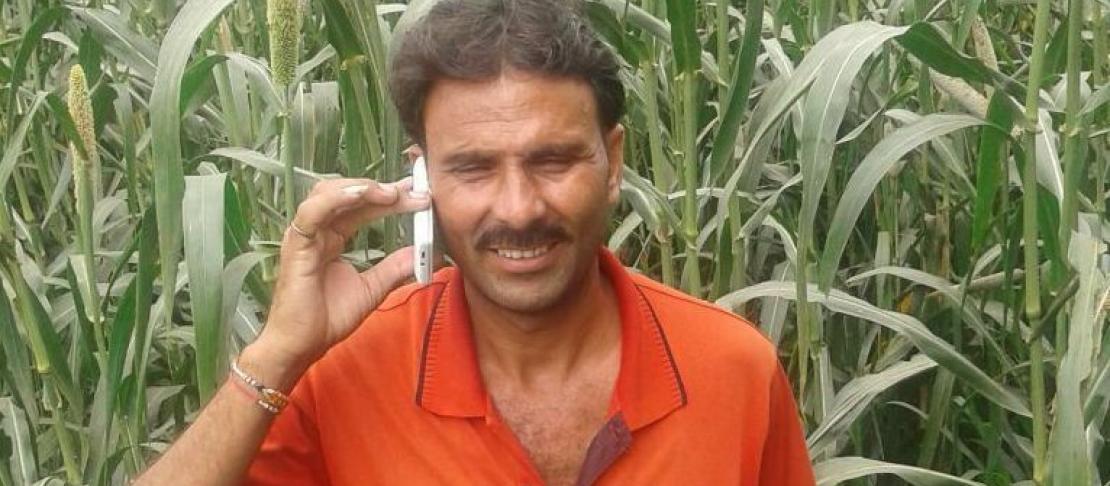From trauma to triumph

Paving the way for empowered farming communities.
"I can hardly recall a time in the last 15 years where I have not been worried day and night about managing enough money to buy medicines for my diseased crops," says Hardesh Kumar, 37, a farmer from Mathura district of Uttar Pradesh, India. Hardesh talks about the horrors of watching his crops fail due to the Downy Mildew disease and how he spent a lot many hours searching for the right treatment in the markets. Needless to say, he had to keep aside a major chunk of his farm income to buy medicines from the market. Due to a lack of proper knowledge about the disease and the right treatments, he was often duped at the market, wherein he either paid exorbitantly or was given the wrong treatment for his diseased crops.
Hardesh’s rescue
This year, "I have slept in peace," he says, when speaking of the USAID-funded seed treatment and agro-advisory services being provided to the farmers in his village, as part of the Climate-Smart Village project (CSV), in partnership with the CGIAR Research Program on Climate Change, Agriculture and Food Security (CCAFS). The core aim of the project is to use global and regional knowledge and skills to scale out climate-resilient agricultural interventions in food insecure and vulnerable areas through the CSV approach. The focus is generally on a basket of synergistic options, rather than on single technologies. The project is being implemented in 75 clusters of villages in eastern India (Bihar, Uttar Pradesh, and Madhya Pradesh) to build additional evidence for scaling out climate-smart agriculture.
Major interventions
As one of the major interventions identified for this project, seed treatment has been provided with the help of local implementing partners, BAIF, that organized knowledge awareness and training sessions on proper seed treatment. Brine solutions, then Trichoderma has been provided to 150 farmers in 10 out of the 25 villages selected for the project. This has shown largely positive results especially for pearl millet which is the staple crop grown by the farmers in the region.
Understanding that seed treatments as a one-off activity in the area of crop protection would not lead to sustainability of outcomes, the project has been designed to include agro-advisory services through the medium of ICT services. With IFFCO Kisan as the implementing partner, voice messages are being provided by the same to the farmers, covering crop-advisories, climate information as well as government schemes currently afloat to help the vulnerable farmers build resilience to climate related stresses.
A Jubilant Hardesh
Hardesh Kumar is a happy and jubilant farmer at the moment. With enhanced knowledge about the proper treatment for his crops, his cost for inputs has come down significantly this year. He continues to acquire additional benefits through the voice messages on crop management that he receives three times daily. With the cell phone firmly in his hands and full view of his boisterous pearl millets behind him, he says, "I am very thankful that such a project has come to improve our lives. I am so much more at peace now and so is my family."
Read more:
- Khatri-Chhetri A, Pande K, Pant A, Sahin S. 2017. Scaling up resilient agricultural practices, technologies and services in the vulnerable areas of India. New Delhi, India. CGIAR Research Program on Climate Change, Agriculture and Food Security (South Asia)
Shehnab Sahin is the Communications Specialist at CCAFS South Asia.
The views expressed in this blog does not represent the official views of USAID.
